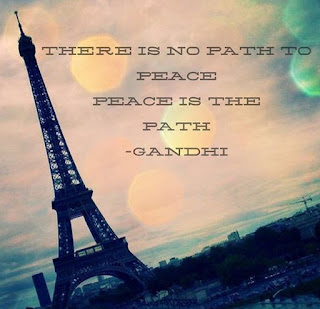The goal of the plutocrats now running U.S. society, including our
governments, is now abundantly clear: they endeavor to institute a new
age of slavery. This was made evident in an editorial in today’s N.Y.
Times with the compelling title of “A Rising Call to Promote STEM
Education and Cut Liberal Arts Funding” By Patricia Cohen (Feb. 21,
2016).
Wait, that doesn’t sound so radical, does it? It does if you know a
few facts. For one there is no reason to favor STEM education over any
other. There is no shortage of qualified applicants for STEM (Science,
Technology, Engineering, Mathematics) jobs.
The unemployment statistics
show this in the numbers of recent graduates who cannot get jobs in
their fields as does the basic fact of economics that if there is a
shortage of workers of a particular type, their wages increase (to
attract the few that are available). Wages in this field are changing no
faster than the others. The “shortage” of STEM job candidates and STEM
college graduates was cooked up by plutocrats to support their demands
for more visas to allow STEM foreign workers into the U.S. Recently
Disney was caught laying off 20 of its I.T. employees to be replaced by
foreigners on work visas, for example. There was no “shortage” other
than the one created by the firing of the current workers who, by the
way, were earning performance bonuses so it is hard to argue they were
substandard.
The plutocrats really like these workers on visas, as they work for
less, which drives down wages for all of the other workers in their
category and they don’t complain, because if they lose their job they
lose their visa and “bye-bye U.S.”
“Welcome to the new slavery. The chains are invisible but real. Sit down and shut the fuck up.”
What is telling are the arguments being used, basically “STEM good,
humanities bad.” They argue that public money shouldn’t be spent on
students who would be working at the lower paying jobs that a humanities
education affords. (I hear echoes of “effing hippies” from the 60’s.)
This argument is, of course, bogus. Currently humanities college
graduates in the U.S. have starting salaries that are roughly equal to
the median salary of all Americans. This means those humanities grads,
all things being roughly the same as they have been in the past, will be
earning above average wages for the rest of their lives, which means
they will pay above average taxes and the taxes in excess of the average
amount repay the public for the education expenditure several times
over. So, guarding the public coffers is a bogus argument.
Also, the plutocrats are basically saying that we should use data
regarding what people are making now to focus our attention regarding
what is important in an education. This makes no sense in an economy in
which people’s jobs are changing so fast that the average worker can
expect to have seven different jobs in their working life, many of which
have not yet been invented. (If you used the job description “social
media consultant” ten years ago, what would people have thought?)
It is clear the kind of future the plutocrats plan.
They expect
citizens to “sit down and shut the fuck up” while they run the country
however they wish. If citizens are to have choices of political
candidates it is only ever between candidates that offer no threat to
the status quo. If a candidate does offer a threat, say recommending
free education and higher taxes on the rich (Go, Bernie!), he is to be
quashed as strongly as possible by a candidate propped up by the
plutocrats.
To enforce this vision of the future, the plutocrats are using chains
of debt. For example, many political upheavals in this country have
been supported by college students. A few changes in the tax code and
voilà now total college student debt exceeds total credit card debt
(think about that). A student looking at a mountain of debt that needs
to be paid off cannot afford to blemish his ability to get a good paying
job with an arrest record, etc. so, college students have been
defanged.
Additionally, teachers and teachers unions have opposed plutocrats
(even to the point of voting for Democrats), so now they are demonized
and beleaguered on all sides and are no longer a political force.
Welcome to the new slavery. The chains are invisible but real. Sit down and shut the fuck up.
Recently people woke up to heart-breaking images
of a lifeless Syrian toddler who had drowned along with 11 others as
the group tried to make its way to Greece. The images were a stark
reminder of the massive tragedy that is unfolding on the shores of
Europe as thousands of Syrians, Iraqis, Afghans and Africans undertake
an extremely hazardous journey to seek asylum in the West. The mass
migration has been described as the largest refugee crisis since World
War II. What has compounded matters further is that Europe itself is
dealing with an economic downturn and high levels of unemployment.
In such a scenario, Europe is facing a huge dilemma. The civil war in
Syria and Iraq, the increasing violence in Afghanistan and the chaos in
African nations like Libya have created millions of refugees who are
trying to escape theatres of war and conflict. However, at the same time
thousands of economic migrants are also tagging along in search of a
better life.
Take the refugees from the African nation of Eritrea. Eritreans form
the second largest group of refugees seeking asylum in Europe after
Syrians. However, at present there’s no conflict in Eritrea. Yet people
are leaving this small African nation because of a highly repressive
government that has created a totalitarian regime. This presents a
tricky situation for European countries. It’s one thing to accept asylum
seekers fleeing conflict zones on humanitarian grounds. But accepting
economic migrants at a time when many European countries are grappling
with their own economic problems may be simply unfeasible.
This is precisely why many European countries such as Greece and
Italy that have seen waves of refugees land on their shores are either
waving them through to Germany and other northern European countries or
blocking their journey further into Europe. What has added to the
confusion is that under the Dublin Regulation refugees should be
screened and their asylum applications processed in the countries where
they arrive first. However, given the mass of humanity arriving on
European shores many countries have stopped following the rules. Add to
this the fact that countries like Germany and Sweden have opened their
doors to refugees, especially from Syria, even though they aren’t the
migrants’ first port of call.
In the midst of this chaos, many countries are even considering
re-imposing border controls, reversing the open borders policy under the
Schengen system for travel among 22 European Union countries. Plus, the
ongoing influx of refugees is bound to provide a fillip to
anti-immigration right-wing political groups in different parts of
Europe. After all, assimilating such large numbers of people from
diverse ethno-religious backgrounds, all at one go, is extremely
difficult. Besides, there’s also the security risk of Islamic State
terrorists/ sympathisers smuggling themselves into Europe among the
refugees to carry out terrorist attacks.
All of this has given rise to calls for a common asylum policy for
Europe to better manage and distribute the burden of incoming refugees.
How Europe does this remains to be seen. Surely, it has to address the
root of the problem – the ongoing civil war in Syria and Iraq as well as
the genuine aspirations of the people in the Middle East and Africa. In
fact, the two aren’t entirely unrelated. Fighting poverty in Africa,
for example, would not only stem the outflow of economic migrants but
also ensure that extremist groups like the Islamic State and its
affiliates are unable to make inroads into vulnerable countries.
The North African nation of Morocco was able to grasp this reality
quite early. As a result, it has initiated a series of economic
cooperation programmes to boost development in the African countries of
the Sahara and Sahel. Plus, Morocco has been actively pushing for
international cooperation in fighting trans-national terrorism with
special focus on the issue of foreign fighters. Against this backdrop,
there’s a strong case for European nations to boost their cooperation
with Morocco and jointly work on development programmes that seek to
mitigate the economic, political and developmental distortions that are
fuelling both conflicts and the mass migration to Europe.

















